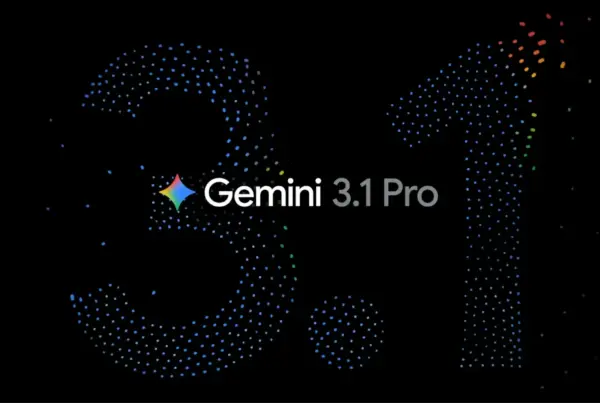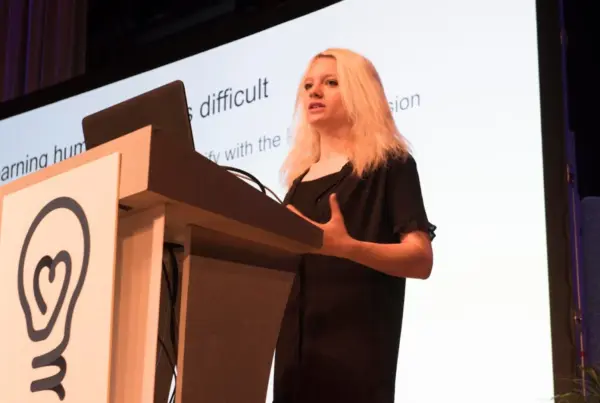Microsoft OpenAI kini memasuki babak baru dalam sejarah kerja sama teknologi global. Setelah restrukturisasi besar yang dilakukan OpenAI, kedua perusahaan resmi menandatangani perjanjian baru yang menegaskan arah dan nilai kemitraan strategis mereka. Langkah ini menandai transformasi dari sekadar kolaborasi teknologi menjadi hubungan bisnis yang lebih seimbang, transparan, dan berkelanjutan.
Perjanjian ini diumumkan setelah OpenAI menyelesaikan proses rekapitalisasi dan mengubah struktur organisasinya menjadi Public Benefit Corporation. Dalam format baru ini, Microsoft tercatat memiliki nilai investasi sekitar 135 miliar dolar AS, atau setara dengan 27 persen kepemilikan secara diluted. Dengan perubahan tersebut, hubungan antara Microsoft dan OpenAI kini diatur secara lebih jelas dan berorientasi jangka panjang.
Arah Baru Kemitraan Strategis
Transformasi ini bukan hanya soal angka. Ia merefleksikan komitmen kedua belah pihak untuk memperluas inovasi kecerdasan buatan dalam kerangka tanggung jawab sosial dan tata kelola yang lebih kuat. Microsoft tetap menjadi mitra utama untuk pengembangan model frontier OpenAI. Hak kekayaan intelektual dan eksklusivitas penggunaan API Azure tetap berada di tangan Microsoft sampai OpenAI secara resmi menyatakan tercapainya Artificial General Intelligence (AGI).
Namun, aturan baru kini mengharuskan setiap deklarasi AGI diverifikasi oleh panel ahli independen. Hal ini memastikan bahwa pengakuan atas tercapainya AGI bukan keputusan sepihak, melainkan melalui mekanisme ilmiah yang dapat dipertanggungjawabkan.
Perpanjangan Hak dan Ruang Kolaborasi
Dalam kesepakatan baru ini, Microsoft memperoleh perpanjangan hak kekayaan intelektual hingga tahun 2032, termasuk untuk model setelah AGI dengan batasan tertentu terkait keselamatan dan etika. Ini berarti Microsoft memiliki posisi strategis dalam jangka panjang untuk terus berinovasi di bidang AI tingkat lanjut.
OpenAI di sisi lain kini diberi ruang lebih luas untuk menjalin kolaborasi dengan pihak ketiga. Meski begitu, ada pembatasan yang tetap menjaga keseimbangan kerja sama. Produk yang dikembangkan melalui API bersama mitra lain tetap harus menggunakan infrastruktur Azure, sedangkan produk non-API dapat berjalan di cloud platform mana pun.
Investasi dan Kebebasan Operasional
Salah satu poin penting dalam kesepakatan ini adalah komitmen OpenAI untuk membeli layanan Azure senilai tambahan 250 miliar dolar AS. Ini memperkuat posisi Azure sebagai tulang punggung infrastruktur kecerdasan buatan global. Namun, berbeda dari kesepakatan sebelumnya, Microsoft tidak lagi memiliki hak prioritas sebagai penyedia komputasi utama OpenAI.
Dengan perubahan ini, OpenAI memperoleh kebebasan untuk memilih penyedia komputasi sesuai kebutuhan, tanpa terikat secara eksklusif. Struktur baru ini memungkinkan fleksibilitas lebih besar bagi OpenAI dalam pengembangan model dan layanan di masa depan.
Akses untuk Kepentingan Nasional dan Open Weight Model
Pembaruan lainnya yang cukup signifikan adalah diperbolehkannya OpenAI memberikan akses API kepada lembaga keamanan nasional Amerika Serikat. Langkah ini dilakukan dalam konteks kepentingan keamanan siber dan pertahanan nasional, di bawah pengawasan ketat regulasi federal.
Selain itu, OpenAI juga kini diizinkan merilis model dengan format open weight—yakni model yang bisa diakses publik namun dengan batas kemampuan tertentu demi keamanan dan kontrol penyalahgunaan. Langkah ini sejalan dengan tren global menuju keterbukaan riset AI, tanpa mengorbankan aspek keselamatan.
Fondasi Etika dan Pengawasan Independen
Kedua perusahaan juga memperkuat komitmen terhadap tata kelola AI yang bertanggung jawab. Panel ahli independen akan memiliki kewenangan untuk menilai perkembangan AGI dan memberikan rekomendasi terkait keamanan, etika, serta dampak sosial dari implementasinya.
Panel ini dirancang untuk bekerja secara otonom dan beranggotakan pakar lintas disiplin, termasuk ilmuwan komputer, ahli etika, dan perwakilan lembaga publik. Dengan cara ini, transparansi dan akuntabilitas dapat dijaga di tengah percepatan inovasi AI global.
Dampak terhadap Industri dan Ekosistem Cloud
Dari sisi industri, struktur baru Microsoft OpenAI diperkirakan akan memperkuat posisi Azure sebagai pusat pengembangan AI terbesar di dunia. Dengan kombinasi kemampuan model frontier OpenAI dan skala komputasi Microsoft, berbagai sektor seperti kesehatan, pendidikan, hingga keuangan akan memperoleh manfaat langsung.
Di sisi lain, kebijakan fleksibilitas cloud memberi ruang bagi pelaku industri lain untuk berinovasi tanpa terhambat oleh eksklusivitas. Langkah ini berpotensi menciptakan ekosistem AI yang lebih kompetitif dan terbuka.
Visi Jangka Panjang Setelah Restrukturisasi
Restrukturisasi OpenAI dan pembaruan kerja sama ini mencerminkan evolusi peran AI dalam ekonomi global. Kedua perusahaan kini menempatkan nilai kemanusiaan dan keberlanjutan di pusat inovasi mereka.
Membangun Ekosistem Berbasis Manfaat Publik
Sebagai Public Benefit Corporation, OpenAI berkewajiban untuk memastikan teknologi yang dikembangkan memberi manfaat luas bagi masyarakat. Dengan dukungan Microsoft, mereka berkomitmen mengembangkan AI yang aman, inklusif, dan dapat diaudit secara transparan.
Model pendanaan yang kini berbasis kepemilikan saham dan kontribusi sosial memungkinkan OpenAI mendanai riset terbuka, termasuk bidang kesehatan, pendidikan, dan mitigasi risiko AI tingkat lanjut.
Potensi Inovasi Pasca-AGI
Dalam jangka panjang, kesepakatan ini membuka jalan bagi eksplorasi model setelah AGI. Baik Microsoft maupun OpenAI menegaskan bahwa penelitian lanjutan hanya akan dilakukan di bawah pengawasan ketat keselamatan dan etika.
Microsoft bahkan diberi hak untuk mengembangkan AGI secara mandiri atau bersama mitra lain. Hal ini menunjukkan kesiapan mereka menghadapi masa depan ketika kecerdasan buatan benar-benar melampaui batas manusia.
Dampak bagi Dunia Teknologi Global
Kesepakatan ini menjadi salah satu tonggak paling penting dalam sejarah industri kecerdasan buatan modern. Ia menunjukkan bahwa kolaborasi antara korporasi besar dan lembaga riset dapat berjalan dalam kerangka transparansi dan tanggung jawab sosial.
Perubahan Dinamika Kompetisi AI
Hubungan Microsoft OpenAI yang kini lebih terbuka dapat memengaruhi peta persaingan global. Perusahaan lain seperti Google DeepMind, Anthropic, dan Meta AI diperkirakan akan meninjau ulang strategi mereka dalam menghadapi model kerja sama baru ini.
Keterbukaan OpenAI terhadap kemitraan pihak ketiga juga memperluas kemungkinan lahirnya ekosistem inovasi lintas platform. Ini menciptakan kompetisi yang sehat sekaligus mempercepat kemajuan teknologi AI secara global.
Reaksi Investor dan Analis Pasar
Pasar menyambut positif kabar restrukturisasi ini. Analis menilai kesepakatan senilai 135 miliar dolar tersebut memperkuat stabilitas finansial kedua pihak dan memperjelas arah jangka panjang kemitraan.
Dengan peran Microsoft yang tetap strategis di sisi infrastruktur dan OpenAI di sisi inovasi model, kemitraan ini dinilai ideal untuk menghadapi tantangan AI di era pasca-AGI.
Transformasi hubungan Microsoft OpenAI bukan sekadar pembaruan kontrak bisnis, tetapi simbol kematangan industri AI global. Keduanya berupaya menyeimbangkan kepentingan ekonomi dengan tanggung jawab sosial, menciptakan struktur yang memungkinkan inovasi terus tumbuh tanpa mengabaikan etika dan keselamatan.
Langkah ini menunjukkan bahwa masa depan kecerdasan buatan bukan hanya tentang kekuatan komputasi, tetapi tentang bagaimana teknologi dapat digunakan untuk memperkuat kemanusiaan. Pembaca dapat mengikuti perkembangan lanjutan kerja sama ini dan implikasinya bagi dunia industri melalui berita terkait di Insimen.
Discover more from Insimen
Subscribe to get the latest posts sent to your email.










































